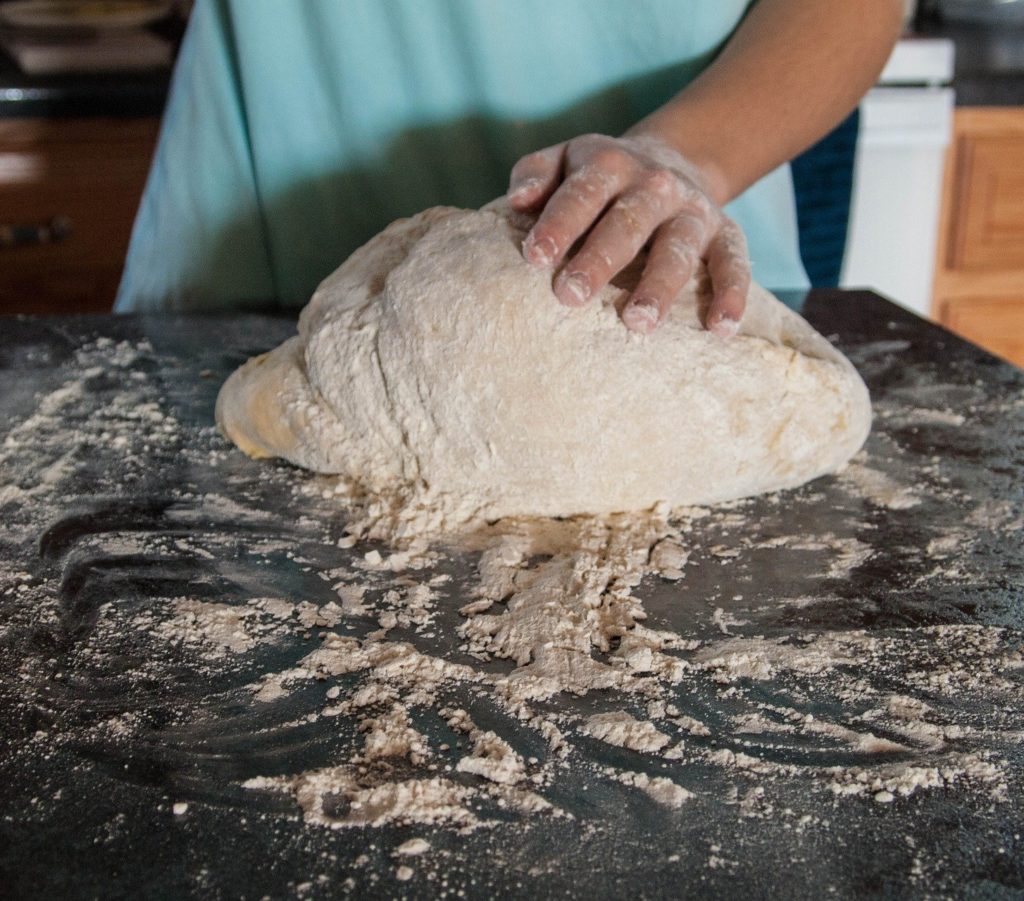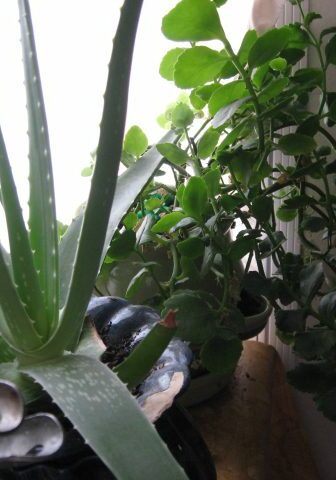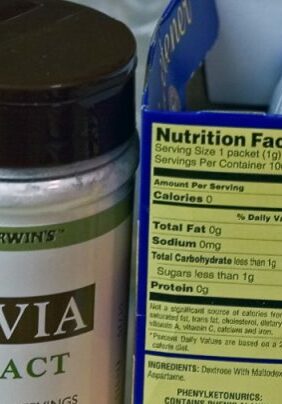An essay on the connection between baking bread and mental health - originally published on Medium in May 2020.

Lately, I have been depressed.
It is hard to get out of bed some days. To do something as simple and gratifying as taking a shower seems nearly impossible. I have worn myself into a spot on this couch and surrounded myself with screens and snacks and other awful luxuries. It is terrifying to consider leaving this nest, and I wouldn’t do it if it weren’t for the anxiety. There are always dishes to wash, calls to make, and a list of looming deadlines a mile long waiting to be dealt with. Every time I try to sink deeper into the junk food-dusted cushions, those shirked responsibilities rise before me as ghoulish figures and dance around my head, leering and taunting me. They know me well, these devils, but they aren’t going to get me this time.
I have bread to bake.
The thought pushes me upwards, my body sluggish and muscles tight. Every step is a fight, but now I have a goal. Yes, my mind might be reeling with awful visions and an overactive imagination, my emotions might be locked into the numb position for this flight, but I can follow instructions. A recipe is a clear guide to follow. You just have to do the work. Easy. One step at a time.
First, measure the ingredients and set them in order, neat and bright on the kitchen counter.
I take a deep breath. I must pull myself together and stand strong at this countertop. The tools are assembled, the ingredients arrayed, and now I must summon, stir, and call forth spirits from the world of the invisible to join this ritual of creation, to guide it and fill these works with life, to make them whole and hearty. Another deep breath. The spirits hear and listen. The yeast wakes from its squat brown jar of slumber, tipped by the spoonful into warm, sugared milk, and begins to grow.
Mix the dry ingredients in a large bowl.
Baking bread is hard work, so why is this the one thing that I can manage to do? It doesn’t make sense. I go ahead anyway. At this point I have to rely on my sense of frugality to keep me going because once you’ve tipped six cups of flour into a bowl, you can’t exactly stop baking, can you? Even if the thought of what lies ahead is Sisyphean, even if the process seems ridiculous in the face of crushing despair. I can’t stop now. Especially now that the salt is sprinkled into the flour and mixed in. There’s no going back.
Add the wet ingredients and carefully mix the dough.
The real work begins. My fingers dig deep furrows through the flour as I pull it into sharp peaks against the sides of the bowl. The flour tumbles over my skin like powdered silk. I make a well in the middle of the bowl. A sacred well, one into which I carefully, slowly add the liquid ingredients. They take their place in the cauldron, the bubbling yeast, and the water. With a prayer, I wield my spoon and carefully pull the mountains down, bringing the flour into the well bit by bit. It makes a slurry, then a paste, then a thick and solid dough. I always use the same wooden spoon to mix the ingredients. Bread appreciates consistency and tradition.
Turn out the dough, wet and firm, onto the floury countertop with a satisfying plop.
By now, my ancestors are behind me, filling the kitchen. Their voices sing as we do this together. With one body, we knead the dough in ancient rhythms. I look back through time while we pull, slap, thump, and push. We’ve been doing this for centuries. Their admonitions about my technique are rough but loving, and gentler by far than the screeching devils left behind on the couch. Pull, push, slap, thump. The voices of my familiar, beloved dead murmur appreciation for the work as I knead the sticky dough just as their hands once did. Our patterns run together. Pull, slap, push, thump. Older tongues from farther away places join the chorus and sing along to the rhythm of the slap-slap-slapping of the dough against the table. We stretch and grow, the bread and I. We get stronger.
Put the dough into an oiled bowl and cover, set in a warm place until doubled in size.
When it is wrapped and rising, there is time to kill. This time, this waiting, this is the dangerous part. How to spend it? I could return to the couch and let it suck me back in, but that is a trap. I’m tired of that. Instead, I use the momentum to fuss, to tidy, to clean the counters, and knock out a few dirty dishes from the teetering pile by the sink. It is a luxury to use a freshly cleaned glass to drink some water, cold and refreshing. Yes. This is good.
But there is still another hour or so to wait while the bread rests and rises. Rest and rise. Wrapped each in our covers, set in a warm place, we rest and rise together, the bread and I, until the alarm’s merry chirping disrupts our slumber.
Turn the dough out onto the counter and punch it down. Let it rest and then shape the loaves to the pan.
It feels wrong to deflate the dough after all of its hard work, but bread has rules. Punching, it is. There is time left for a yawn, a stretch, and maybe a few more minutes of rest before the shaping of the loaves. In my hands, the living dough is sundered and shaped, two lumps unfurling into long, fat snakes before my eyes. They must rest again to become familiar with their new shape. I understand how it feels. We wait together.
Preheat the oven.
Now is the time for the great transformation, the test, the sacrifice. I admire the doughy loaves. With an unsteady hand, I slash them and hope it doesn’t hurt. You have to be able to blow off steam. Carefully, they are set into the yawning hellmouth of the oven. I wander and pace, trying not to panic, knowing it is silly to fuss and flutter so over bread. It’s just bread.
It’s okay, though, because nothing about this experience is real until you can smell the bread. Even though your shoulders and hands ache with the efforts of kneading, that work means nothing until the aroma of the baking dough hits your nose and lights up your brain with fireworks. Once it is really happening, you can look in the oven and watch the toasted bits flutter in the sour steam, the aching skin cracking as the bread rises in exultation.
The spell is working its magic. The ritual is an overwhelming success. Even at my weakest, I can recreate ancient magic, some of the oldest alchemy to which our species can lay claim. The bread and I rise together, we grow. My ancestors nod their heads in silent approval as my eyes tear up with gratitude. The house smells like heaven.
The bread is done when it is golden and there is a hollow noise when you thump the bottom. Allow it to cool completely before cutting.
Serve while laughing and weeping in equal measures and revel in the gratitude that magic is real and it is here, drenched in butter and honey. Know that sustenance can be created from sorrow and nourishment from grief, and sometimes that life can be delicious in rebellion against everything awful.
Get updates from Pixie's Pocket: brewing and herbs in your inbox:
Posted In Blog, Bread Recipes
Tagged: anxiety, do the work, motivation
Amber Shehan
Hi! I'm Amber Pixie, and this is my site. Enjoy the recipes, information, posts, and please feel free to message me if you have questions!





I loved this one, and feel the same sometimes. There’s something about baking – or cooking in general – that calms. Maybe it’s changing our focus from ourselves to our art, or maybe it’s more primal and connects us to our roots ❤️
–